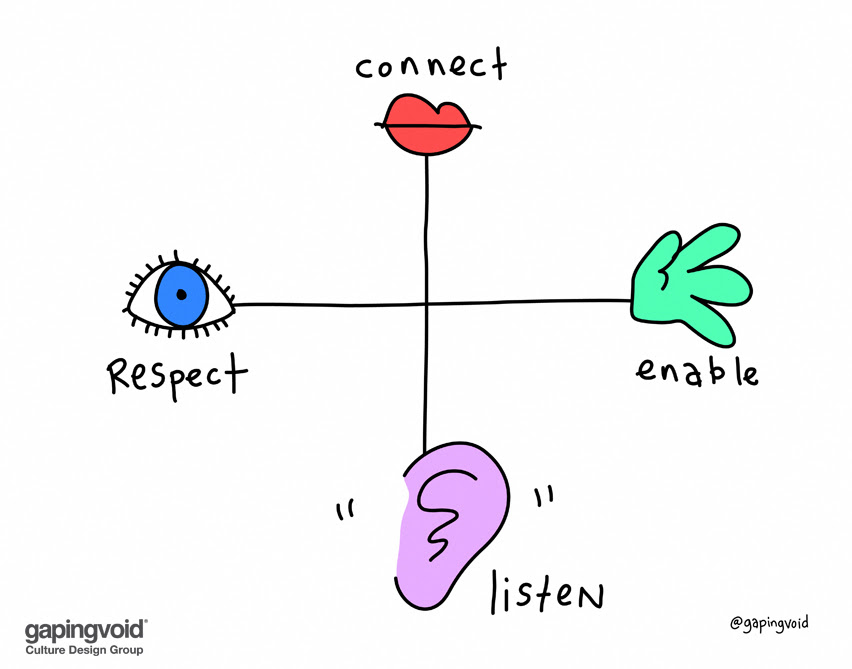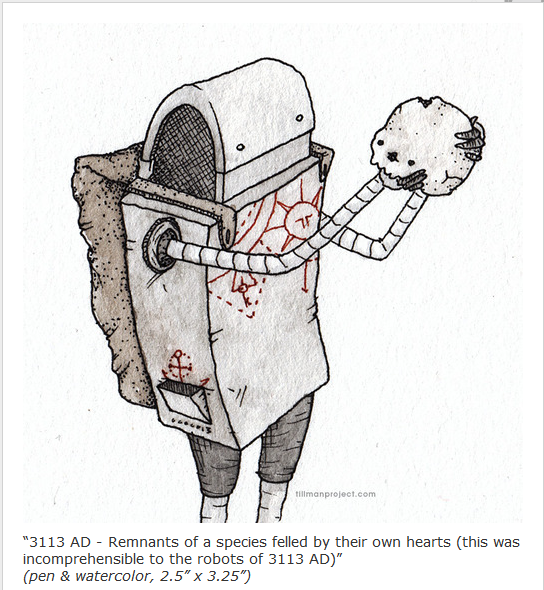The Bankstown Poetry Grand Slam in the Sydney Opera House last night was absolutely spectacularly fantastic o/

Just was offered a new position. Let’s see what I can make from it.

My favourite podcast, a guaranteed pick-me up at all times:
The history of rebellion is rife with excess and burnout. But new generations have a distinctive commitment to be reflective and activist at once, to be in service as much as in charge, and to learn from history while bringing very new realities into being. Quaker wise man Parker Palmer and journalist and entrepreneur Courtney Martin come together for a cross-generational conversation about the inner work of sustainable, resilient social change.
Parker Palmer and Courtney Martin — The Inner Life of Rebellion
I’m doing a course, and so did a colleague, he since left cos didn’t like the course, but he now doesn’t talk to me anymore. Not sure why.
But: I do think this colleague thinks I’m a feminist. And I am not. But his attitude makes me one.
That’s a shit situation to be in, and my dilemma.
I’d much much rather prefer to fight anyone else’s fight, cos I’m a pathetic feminist.
The biggest development challenges for the future stem not from lack of global finance but lack of global governance http://t.co/yom2PHVxNP
— Ilona Kickbusch (@IlonaKickbusch) May 1, 2015
He wrapped up his talk one this fabulous note:
My great hope is that some of you answer it by working to end poverty, boost shared prosperity, and battle climate change. But whatever you do, please remember that the time is now for all of us to work together to bend the arc of history toward justice.
The great anthropologist Margaret Mead once said, “Never doubt that a small group of thoughtful, committed citizens can change the world; indeed, it’s the only thing that ever has.”
Be those citizens.Take it on. And please go change the world.
Thank you very much.
Remarks by World Bank Group President Jim Yong Kim, Ogden Lecture at Brown University, Providence, Rhode Island, United States, March 7, 2014.
Senator Scott Ludlam welcomes Abbott to WA. The most ingenious brilliant speech ever. Epic. Intelligent. Senses nourishing.
1/2 million views in 3 days.
In “Climate change as a cultural and behavioral issue: Addressing barriers and implementing solutions” Andrew J. Hoffman draws a very timely analogy –
Looking at Climate Change through the parallel of slavery:
“Climate change today still resides in the ‘pre’ social fact phase, awaiting public acceptance. But just how big a shift will this be? To that point, I turn to the abolition of slavery.
In short, the magnitude of the cultural and moral shift around climate change is as large as that which accompanied the abolition of slavery. Adam Hochschild, in his book Bury the Chains, makes the startling point that in the 18th century more than 75% of the world’s population was in slavery or serfdom. Humans were a primary source of energy and wealth, particularly for the dominant world power, Great Britain. Hochschild points out that “if you stood on a London street corner and insisted that slavery was morally wrong and should be stopped, nine out of 10 listeners would have laughed you off as a crackpot.” Abolition would lead to a collapse of the economy and their way of life. Abolitionism was a challenge to the underlying beliefs upon which the Empire was built. At the time, few people saw a moral problem with this critical institution. People simply did not believe, as we do today, that all people have a right to freedom and equality. Slavery was seen as the natural order of things, unquestioned and even supported by many through the words of the Bible. It took roughly 100 years to abolish slavery in the British Empire, and Hochschild points out that, by the end of the 19th century, slavery was, at least on paper, outlawed almost everywhere.
Now, flash forward to today. We live in a fossil fuel-based economy. Fossil fuels are our primary source of energy and support our entire way of life. As scientific evidence mounts that this critical institution is causing changes to the global climate, we are faced with a technological and social dilemma. Calls to end our dependence on fossil fuels are being met with the same kind of response as did calls to end our dependence on slavery: such a move would wreck the economy and the way of life that is built upon it. If you stood on a New York City street corner and insisted that burning fossil fuels was morally wrong and should be stopped, listeners would laugh you off as a crackpot. There is a vast physical infrastructure that depends on oil, and it cannot be simply replaced without great disruption. Abolition of the primary source of energy in the world is out of the question, both socially and technologically.
Just as few people saw a moral problem with slavery in the 18th century, few people in the 21st century see a moral problem with the burning of fossil fuels. Will people in 100 years look at us with the same incomprehension we feel toward 18th-century defenders of slavery? If we are to address the problem adequately, the answer to that question must be yes; our common atmosphere will no longer be seen as a free dumping ground for greenhouse gases and other pollutants. But this value shift will require humankind to come to terms with a new cultural reality.
The first piece of this reality is that humankind has grown to such numbers and our technologies have grown to such a capacity that we can, and do, alter the Earth’s ecological systems on a planetary scale. It is a fundamental shift in the physical order – one never before seen, and one that alters the ethics and morals by which we judge our behavior as it relates to the environment around us and to the rest of humanity that depends on that environment.
The second piece of that reality is that we share a collective responsibility and require global cooperation to solve it. The coal burned in Ann Arbor, Shanghai or Moscow has an equal impact on the environment we all share. The kind of cooperation necessary to solve this problem is far beyond anything we, as a species, have ever accomplished before. International treaties to ban land mines or eliminate ozone-depleting substances pale in comparison. Looking at climate change through the parallel of slavery helps us to see the magnitude of the issue before us.”
Excerpt from: Hoffman, A. (2010) “Climate change as a cultural and behavioral issue: Addressing barriers and implementing solutions,” Organizational Dynamics, 39 (4): 295-305.
read the full pdf here
Art is individualism, and individualism is a disturbing and disintegrating force. There lies its immense value. For what it seeks is to disturb monotony of type, slavery of custom, tyranny of habit, and the reduction of man to the level of a machine.
Oscar Wilde “The Soul of Man under Socialism”
Last night I saw Dr David Suzuki‘s talk “Over the Horizon – next steps for sustainable cities and the world” at Sydney’s Angel Place Recital Hall. The talk was followed by a panel discussion with Dr Tim Flannery, Head of our brand-new ClimateCouncil.org.au, Clover Moore Lord Mayor of the City of Sydney, David Ritter from Greenpeace Australia, Anna Rose, Environmentalist, wife of Simon Sheikh and Author of “It’s Getting Hot in Here“, and Alex Wyatt from Climate Bridge.
Awe-inspiring. Wish we could vote them all in a new alternative government that supports (not blocks) us citizens with running a better, healthier, sustainable Australia…

From the Tillmanproject.com
“My gut feeling is the big expansion of coal in India is not going to happen, and they are going to leapfrog into renewables.” – Tim Flannery
Taken from “Coal? It’s Over” by Mike Seccombe – A great read about Australia’s insane/reckless fixation on fossil fuels.
View the whole article here @ The Global Mail
:: 2013 update – http://robinhoodtax.org.uk/latest/dont-believe-hype-robin-hood-tax-alive-and-kicking ::
A rockin good idea. Sure not easy to roll out, and in danger of being ‘hijacked’ at some point, or see inflated overheads, but still a beautiful (and just) idea.
Go and vote YES 🙂
Because the time is right.
From 2007 to present the world is suffering the greatest recession since World War I that is caused by a crash in the financial system. There is global agreement that we need to regulate finance so it cannot crash in the same way again, even if there are different views about how to do this. But the finance sector can – and should – make a proper tax contribution towards putting right the damage it caused and making the world a better, fairer, more sustainable place.
Computerisation of the finance sector has made a tax like this easy to implement. What’s more, it’s made it necessary – the very speed of today’s financial systems is a direct contributor to the surge in global trading. Nowadays, too much trading is done to make a quick profit, and not to serve the real economy. This high frequency trading has brought instability.
read more here http://robinhoodtax.org.au
The most important subject taught to school children is rapidly becoming computer science and applications: How to use machines instead of brains, programs instead of knowledge.
Ray Kurzweil – THE AGE OF INTELLIGENT MACHINES | The Age of Intelligent People
What will that do to our N-Geners? Will it impact their capacity for empathy and compassion?
… and why I suck at them.
All that is happening around us, the digitalisation of our world and the ever-connectedness that comes with it, to me this is all just one awe-inspiring invigorating exhilarating over the moon great huge adventure, with software sprouting everywhere to be consumed brainfinger-lickingly, with layers going down deeper and deeper by the byte, all that just absolutely blows my mind, every single day, again and again. What’s ahead of us, the breadth of the tech horizon of which we’ve only just seen a fraction so far (its maybe 5:45am on a winter morning), is just so gobsmackingly fabulous and exiting and inspiring right down to the tiniest braincell (and heart.bit), it’s the best reason to get out of bed every morning to see where we’ve gotten to today. At least that’s what I think and feel about the whole thing.
But – when at a job interview I find it simply impossible to even begin to give a proper answer to questions like “where do you see personal enhancement opportunities” or “can you describe a situation past with communication gone wrong” or “would you see yourself rather-than-as?”
Continue reading “Job interviews…”